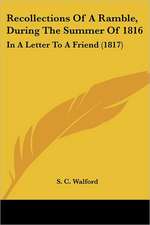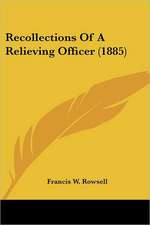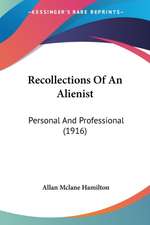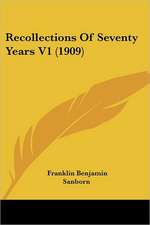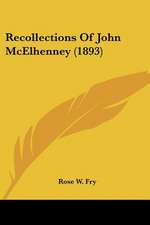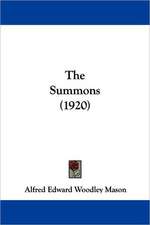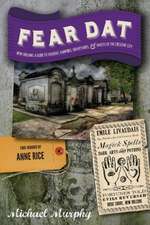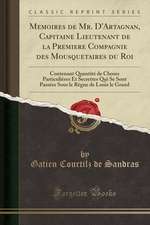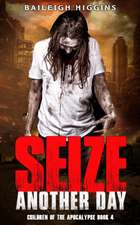Angel Time: The Songs of the Seraphim
Autor Anne Riceen Limba Engleză Hardback – 30 sep 2009
Vezi toate premiile Carte premiată
The novel opens in the present. At its center: Toby O’Dare—a contract killer of underground fame on assignment to kill once again. A soulless soul, a dead man walking, he lives under a series of aliases—just now: Lucky the Fox—and takes his orders from “The Right Man.”
Into O’Dare’s nightmarish world of lone and lethal missions comes a mysterious stranger, a seraph, who offers him a chance to save rather than destroy lives. O’Dare, who long ago dreamt of being a priest but instead came to embody danger and violence, seizes his chance. Now he is carried back through the ages to thirteenth-century England, to dark realms where accusations of ritual murder have been made against Jews, where children suddenly die or disappear . . . In this primitive setting, O’Dare begins his perilous quest for salvation, a journey of danger and flight, loyalty and betrayal, selflessness and love.
| Toate formatele și edițiile | Preț | Express |
|---|---|---|
| Paperback (2) | 100.03 lei 6-8 săpt. | +10.26 lei 4-10 zile |
| Anchor Books – 31 iul 2011 | 118.40 lei 17-23 zile | +10.26 lei 4-10 zile |
| CORNERSTONE – 30 iun 2010 | 100.03 lei 6-8 săpt. |
Preț: 145.96 lei
Nou
Puncte Express: 219
Preț estimativ în valută:
27.93€ • 28.82$ • 23.64£
27.93€ • 28.82$ • 23.64£
Carte indisponibilă temporar
Doresc să fiu notificat când acest titlu va fi disponibil:
Se trimite...
Preluare comenzi: 021 569.72.76
Specificații
ISBN-13: 9781400043538
ISBN-10: 1400043530
Pagini: 267
Dimensiuni: 165 x 245 x 27 mm
Greutate: 0.5 kg
Editura: Knopf Publishing Group
Locul publicării:New York, NY
ISBN-10: 1400043530
Pagini: 267
Dimensiuni: 165 x 245 x 27 mm
Greutate: 0.5 kg
Editura: Knopf Publishing Group
Locul publicării:New York, NY
Notă biografică
Anne Rice is the author of twenty-nine books. She lives in Rancho Mirage, California.
Extras
SHADES OF DESPAIR
There were omens from the beginning.
First off, I didn't want to do a job at the Mission Inn. Anywhere in the country, I would have been willing, but not the Mission Inn. And in the bridal suite, that very room, my room. Bad luck and beyond, I thought to myself.
Of course my boss, The Right Man, had no way of knowing when he gave me this assignment that the Mission Inn was where I went when I didn't want to be Lucky the Fox, when I didn't want to be his assassin.
The Mission Inn was part of that very small world in which I wore no disguise. I was simply me when I went there, six foot four, short blond hair, gray eyes—a person who looked like so many other people that he didn't look like any special person at all. I didn't even bother to wear braces to disguise my voice when I went there. I didn't even bother with the de rigueur sunglasses that shielded my identity in every other place, except the apartment and neighborhood where I lived.
I was just who I am when I went there, though who I am was nobody except the man who wore all those elaborate disguises when he did what he was told to do by The Right Man.
So the Mission Inn was mine, cipher that I was, and so was the bridal suite, called the Amistad Suite, under the dome. And now I was being told to systematically pollute it. Not for anyone else but myself, of course. I would never have done anything to harm the Mission Inn.
A giant confection and confabulation of a building in Riverside, California, it was where I often took refuge, an extravagant and engulfing place sprawling over two city blocks, and where I could pretend, for a day or two or three, that I wasn't wanted by the FBI, Interpol, or The Right Man, a place where I could lose myself and my conscience. Europe had long ago become unsafe for me, due to the increased security at every checkpoint, and the fact that the law enforcement agencies that dreamed of trapping me had decided I was behind every single unsolved murder they had on the books.
If I wanted the atmosphere I'd loved so much in Siena or Assisi, or Vienna or Prague and all the other places I could no longer visit, I sought out the Mission Inn. It couldn't be all those places, no. Yet it gave me a unique haven and sent me back out into my sterile world a renewed spirit.
It wasn't the only place where I wasn't anybody at all, but it was the best place, and the place to which I went the most.
The Mission Inn was not far from where I "lived," if one could call it that. And I went there on impulse generally, and at any time that they could give me my suite. I liked the other rooms all right, especially the Inn keeper's Suite, but I was patient in waiting for the Amistad. And sometimes they called me on one of the many special cell phones I carried, to let me know the suite could be mine.
Sometimes I stayed as long as a week in the Mission Inn. I'd bring my lute with me, and maybe play it a little. And I always had a stack of books to read, almost always history, books on medieval times or the Dark Ages, or the Renaissance, or Ancient Rome. I'd read for hours in the Amistad, feeling uncommonly safe and secure.
There were special places I went from the Inn.
Often, undisguised, I drove over to nearby Costa Mesa to hear the Pacific Symphony. I liked it, the contrast, moving from the stucco arches and rusted bells of the Inn to the immense Plexiglas miracle of the Segerstrom Concert Hall, with the pretty Cafe Rouge on the first floor.
Behind those high clear undulating windows, the restaurant appeared to float in space. I felt, when I dined in it, that I was indeed floating in space, and in time, detached from all things ugly and evil, and sweetly alone.
I had just recently heard Stravinsky's Rite of Spring in that concert hall. Loved it. Loved the pounding madness of it. It had brought back a memory of the very first time I'd ever heard it, ten years before—on the night when I'd met The Right Man. It had made me think of my own life, and all that had happened since then, as I'd drifted through the world waiting for those cell phone calls that always meant somebody was marked, and I had to get him.
I never killed women, but that's not to say that I hadn't before I became The Right Man's vassal or serf, or knight, depending on how one chose to view it. He called me his knight. I thought of it in far more sinister terms, and nothing during these ten years had ever accustomed me to my function.
Often I even drove from the Mission Inn to the Mission of San Juan Capistrano, south and closer to the coast, another secret place, where I felt unknown and sometimes even happy.
Now the Mission of San Juan Capistrano is a real mission. The Mission Inn is not. The Mission Inn is a tribute to the architecture and heritage of the Missions. But San Juan Capistrano is the real thing.
At Capistrano, I roamed the immense square garden, the open cloisters, and visited the narrow dim Serra Chapel—the oldest consecrated Catholic chapel in the state of California.
I loved the chapel. I loved that it was the only known sanctuary on the whole coast in which Blessed Junípero Serra, the great Franciscan, had actually said Mass. He might have said Mass in many another Mission chapel. In fact surely he had. But this was the only one about which everyone was certain.
There had been times in the past when I'd driven north to visit the Mission at Carmel, and look into the little cell there that they'd re-created and ascribed to Junípero Serra, and meditated on the simplicity of it: the chair, the narrow bed, the cross on the wall. All a saint needed.
And then there was San Juan Bautista, too, with its refectory and museum—and all the other Missions that had been so painstakingly restored.
I'd wanted to be a priest for a while when I was a boy, a Dominican, in fact, and the Dominicans and the Franciscans of the California missions were mixed in my mind because they were both mendicant orders. I respected them equally, and there was a part of me that belonged to that old dream.
I still read history books about the Franciscans and the Dominicans. I had an old biography of Thomas Aquinas saved from my school days, full of old notes. Reading history always soothed me. Reading history let me sink into ages safely gone by. Same with the Missions. They were islands not of our time.
It was the Serra Chapel in San Juan Capistrano that I visited most often.
I went there not to remember the devotion I'd known as a boy. That was gone forever. Fact was, I simply wanted the blueprint of the paths that I'd traveled in those early years. Maybe I just wanted to walk the sacred ground, walk through places of pilgrimage and sanctity because I couldn't actually think about them too much.
I liked the beamed ceiling of the Serra Chapel, and its darkly painted walls. I felt calm in the quality of gloom inside it, the glimmer of the gold retablo at the far end of it—the golden framework that was behind the altar and fitted with statues and saints.
I loved the red sanctuary light burning to the left of the tabernacle. Sometimes I knelt right up there before the altar on one of the prie-dieux obviously intended for a bride and a groom.
Of course the golden retablo, or reredos, as it's often called, hadn't been there in the days of the early Franciscans. It had come later, during the restoration, but the chapel itself seemed to me to be very real. The Blessed Sacrament was in it. And the
Blessed Sacrament, no matter what I believed, meant "real."
How can I explain this?
I always knelt in the semidarkness for a very long time, and I'd always light a candle before I left, though for whom or what I couldn't have said. Maybe I whispered, "This is in memory of you, Jacob, and you, Emily." But it wasn't a prayer. I didn't believe in prayer any more than I believed in actual memory. I craved rituals and monuments, and maps of meaning. I craved history in book and building and paint—and I believed in danger, and I believed in killing people whenever and wherever I was instructed to do it by my boss, whom in my heart of hearts I called simply The Right Man.
Last time I'd been to the Mission—scarcely a month ago— I'd spent an unusually long time walking about the enormous garden.
Never have I seen so many kinds of flowers in one place. There were modern roses, exquisitely shaped, and older ones, open like camellias, there were trumpet flower vines, and morning glory, lantana, and the biggest bushes of blue plum - bago that I'd ever seen in my life. There were sunflowers and orange trees, and daisies, and you could walk right through the heart of this on any of the many broad and comfortable newly paved paths.
I'd taken my time in the enclosing cloisters, loving the ancient and uneven stone floors. I'd enjoyed looking out at the world from under the arches. Round arches had always filled me with a sense of peace. Round arches defined the Mission, and round arches defined the Mission Inn.
It gave me special pleasure at Capistrano that the layout of the Mission was an ancient monastic design to be found in monasteries all over the world, and that Thomas Aquinas, my saintly hero when I was a boy, had probably spent many an hour roaming just such a square with its arches and its neatly laid out paths, and its inevitable flowers.
Throughout history monks had laid out this plan again and again as if the very bricks and mortar could somehow stave off an evil world, and keep them and the books they wrote safe forever.
I stood for a long time in the hulking shell of the great ruined church of Capistrano.
An earthquake in 1812 had destroyed it, and what remained was a high gaping and roofless sanctuary of empty niches and daunting size. I'd stared at the random chunks of brick and cement wall scattered here and there, as if they had some meaning for me, some meaning, like the music of The Rite of Spring, something to do with my own wretched wreck of a life.
I was a man shaken by an earthquake, a man paralyzed by dissonance. I knew that much. I thought about that all the time, though I tried to detach it from any continuity. I tried to accept what seemed my fate. But if you don't believe in fate, well, that is not easy.
On my most recent visit, I'd been talking to God in the Serra Chapel, and telling Him how much I hated Him that He didn't exist.
I'd told Him how vicious it was, the illusion that He existed, how unfair it was to do that to mortal men, and especially to children, and how I detested Him for it.
I know, I know, this doesn't make sense. I did a lot of things that didn't make sense. Being an assassin and nothing else didn't make sense. And that was probably why I was circling these same places more and more often, free of my many disguises.
I knew I read history books all the time as though I believed a God had acted in history more than once to save us from ourselves, but I didn't believe this at all, and my mind was full of random facts about many an age and many a famous personage. Why would a killer do that?
One can't be a killer every moment of one's life. Some humanity is going to show itself now and then, some hunger for normality, no matter what you do. And so I had my history books, and the visits to these few places that took me to the times of which I read with such numb enthusiasm, filling my mind with narrative so that it wouldn't be empty and turn in on itself.
And I had to shake my fist at God for the meaninglessness of it all. And to me, it felt good. He didn't really exist, but I could have Him that way, in anger, and I'd liked those moments of conversation with the illusions that had once meant so much, and now only inspired rage.
Maybe when you're brought up Catholic, you hold to rituals all your life. You live in a theater of the mind because you can't get out of it. You're gripped all your life by a span of two thousand years because you grew up being conscious of belonging to that span.
Most Americans think the world was created the day they were born, but Catholics take it back to Bethlehem and beyond, and so do Jews, even the most secular of them, remembering the Exodus, and the promises to Abraham before that. Never ever did I look at the nighttime stars or the sands of a beach without thinking of God's promises to Abraham about his progeny, and no matter what else I did or didn't believe, Abraham was the father of the tribe to which I still belonged through no fault or virtue of my own.
I will multiply thy seed as the stars of the heaven, and as the sand which is upon the sea shore.
So that's how we go on acting dramas in our theater of the mind even when we don't believe anymore in the audience or the director or the play.
I'd laughed thinking about that, as I'd meditated in the Serra Chapel, laughed out loud like a crazy man as I knelt there, murmuring in the sweet and delicious gloom and shaking my head.
What had maddened me on that last visit was that it was just past ten years to the day that I'd been working for The Right Man.
The Right Man had remembered the anniversary, talking about anniversaries for the first time ever and presenting me with a huge monetary gift that had already been wired to the bank account in Switzerland through which I most often received my money.
He'd said to me over the phone the evening before, "If I knew anything about you, Lucky, I'd give you something more than cold cash. All I know is you like to play the lute, and when you were a kid you played it all the time. They told me that, about your playing. If you hadn't loved the lute so much, maybe we never would have met. Realize how long it's been since I've seen you? And I always hope you're going to drop in, and bring your precious lute with you. When you do that, I'll get you to play for me, Lucky. Hell, Lucky, I don't even know where you really live."
Now that was something he brought up all the time, that he didn't know where I lived, because I think he feared, in his heart of hearts, that I didn't trust him, that my work had slowly eroded the love for him which I felt.
But I did trust him. And I did love him. I didn't love anyone in the world but him. I just didn't want anyone to know where I lived.
No place I lived was home, and I changed where I lived often. Nothing traveled with me from home to home, except my lute, and all my books. And of course my few clothes.
In this age of cell phones and the Internet, it was so easy to be untraceable. And so easy to be reached by an intimate voice in a perfect teletronic silence.
"Look, you can reach me anytime, day or night," I'd reminded him. "Doesn't matter where I live. Doesn't matter to me, so why should it matter to you? And someday, maybe I'll send you a recording of me playing the lute. You'll be surprised. I'm still good at it."
He'd chuckled. Okay with him, as long as I always answered the phone.
"Have I ever let you down?" I'd asked.
"No, and I'll never let you down either," he'd replied. "Just wish I could see you more often. Hell, you could be in Paris right now, or Amsterdam."
"I'm not," I'd answered. "You know that. The checkpoints are too hot. I'm in the States as I've been since Nine-Eleven. I'm closer than you think, and I'll come see you one of these days, just not right now, and maybe I'll take you to dinner. We'll sit in a restaurant like human beings. But these days, I'm not up to the meeting. I like being alone."
There had been no assignment on that anniversary, so I was able to stay in the Mission Inn, and I'd driven over to San Juan Capistrano the following morning.
There were omens from the beginning.
First off, I didn't want to do a job at the Mission Inn. Anywhere in the country, I would have been willing, but not the Mission Inn. And in the bridal suite, that very room, my room. Bad luck and beyond, I thought to myself.
Of course my boss, The Right Man, had no way of knowing when he gave me this assignment that the Mission Inn was where I went when I didn't want to be Lucky the Fox, when I didn't want to be his assassin.
The Mission Inn was part of that very small world in which I wore no disguise. I was simply me when I went there, six foot four, short blond hair, gray eyes—a person who looked like so many other people that he didn't look like any special person at all. I didn't even bother to wear braces to disguise my voice when I went there. I didn't even bother with the de rigueur sunglasses that shielded my identity in every other place, except the apartment and neighborhood where I lived.
I was just who I am when I went there, though who I am was nobody except the man who wore all those elaborate disguises when he did what he was told to do by The Right Man.
So the Mission Inn was mine, cipher that I was, and so was the bridal suite, called the Amistad Suite, under the dome. And now I was being told to systematically pollute it. Not for anyone else but myself, of course. I would never have done anything to harm the Mission Inn.
A giant confection and confabulation of a building in Riverside, California, it was where I often took refuge, an extravagant and engulfing place sprawling over two city blocks, and where I could pretend, for a day or two or three, that I wasn't wanted by the FBI, Interpol, or The Right Man, a place where I could lose myself and my conscience. Europe had long ago become unsafe for me, due to the increased security at every checkpoint, and the fact that the law enforcement agencies that dreamed of trapping me had decided I was behind every single unsolved murder they had on the books.
If I wanted the atmosphere I'd loved so much in Siena or Assisi, or Vienna or Prague and all the other places I could no longer visit, I sought out the Mission Inn. It couldn't be all those places, no. Yet it gave me a unique haven and sent me back out into my sterile world a renewed spirit.
It wasn't the only place where I wasn't anybody at all, but it was the best place, and the place to which I went the most.
The Mission Inn was not far from where I "lived," if one could call it that. And I went there on impulse generally, and at any time that they could give me my suite. I liked the other rooms all right, especially the Inn keeper's Suite, but I was patient in waiting for the Amistad. And sometimes they called me on one of the many special cell phones I carried, to let me know the suite could be mine.
Sometimes I stayed as long as a week in the Mission Inn. I'd bring my lute with me, and maybe play it a little. And I always had a stack of books to read, almost always history, books on medieval times or the Dark Ages, or the Renaissance, or Ancient Rome. I'd read for hours in the Amistad, feeling uncommonly safe and secure.
There were special places I went from the Inn.
Often, undisguised, I drove over to nearby Costa Mesa to hear the Pacific Symphony. I liked it, the contrast, moving from the stucco arches and rusted bells of the Inn to the immense Plexiglas miracle of the Segerstrom Concert Hall, with the pretty Cafe Rouge on the first floor.
Behind those high clear undulating windows, the restaurant appeared to float in space. I felt, when I dined in it, that I was indeed floating in space, and in time, detached from all things ugly and evil, and sweetly alone.
I had just recently heard Stravinsky's Rite of Spring in that concert hall. Loved it. Loved the pounding madness of it. It had brought back a memory of the very first time I'd ever heard it, ten years before—on the night when I'd met The Right Man. It had made me think of my own life, and all that had happened since then, as I'd drifted through the world waiting for those cell phone calls that always meant somebody was marked, and I had to get him.
I never killed women, but that's not to say that I hadn't before I became The Right Man's vassal or serf, or knight, depending on how one chose to view it. He called me his knight. I thought of it in far more sinister terms, and nothing during these ten years had ever accustomed me to my function.
Often I even drove from the Mission Inn to the Mission of San Juan Capistrano, south and closer to the coast, another secret place, where I felt unknown and sometimes even happy.
Now the Mission of San Juan Capistrano is a real mission. The Mission Inn is not. The Mission Inn is a tribute to the architecture and heritage of the Missions. But San Juan Capistrano is the real thing.
At Capistrano, I roamed the immense square garden, the open cloisters, and visited the narrow dim Serra Chapel—the oldest consecrated Catholic chapel in the state of California.
I loved the chapel. I loved that it was the only known sanctuary on the whole coast in which Blessed Junípero Serra, the great Franciscan, had actually said Mass. He might have said Mass in many another Mission chapel. In fact surely he had. But this was the only one about which everyone was certain.
There had been times in the past when I'd driven north to visit the Mission at Carmel, and look into the little cell there that they'd re-created and ascribed to Junípero Serra, and meditated on the simplicity of it: the chair, the narrow bed, the cross on the wall. All a saint needed.
And then there was San Juan Bautista, too, with its refectory and museum—and all the other Missions that had been so painstakingly restored.
I'd wanted to be a priest for a while when I was a boy, a Dominican, in fact, and the Dominicans and the Franciscans of the California missions were mixed in my mind because they were both mendicant orders. I respected them equally, and there was a part of me that belonged to that old dream.
I still read history books about the Franciscans and the Dominicans. I had an old biography of Thomas Aquinas saved from my school days, full of old notes. Reading history always soothed me. Reading history let me sink into ages safely gone by. Same with the Missions. They were islands not of our time.
It was the Serra Chapel in San Juan Capistrano that I visited most often.
I went there not to remember the devotion I'd known as a boy. That was gone forever. Fact was, I simply wanted the blueprint of the paths that I'd traveled in those early years. Maybe I just wanted to walk the sacred ground, walk through places of pilgrimage and sanctity because I couldn't actually think about them too much.
I liked the beamed ceiling of the Serra Chapel, and its darkly painted walls. I felt calm in the quality of gloom inside it, the glimmer of the gold retablo at the far end of it—the golden framework that was behind the altar and fitted with statues and saints.
I loved the red sanctuary light burning to the left of the tabernacle. Sometimes I knelt right up there before the altar on one of the prie-dieux obviously intended for a bride and a groom.
Of course the golden retablo, or reredos, as it's often called, hadn't been there in the days of the early Franciscans. It had come later, during the restoration, but the chapel itself seemed to me to be very real. The Blessed Sacrament was in it. And the
Blessed Sacrament, no matter what I believed, meant "real."
How can I explain this?
I always knelt in the semidarkness for a very long time, and I'd always light a candle before I left, though for whom or what I couldn't have said. Maybe I whispered, "This is in memory of you, Jacob, and you, Emily." But it wasn't a prayer. I didn't believe in prayer any more than I believed in actual memory. I craved rituals and monuments, and maps of meaning. I craved history in book and building and paint—and I believed in danger, and I believed in killing people whenever and wherever I was instructed to do it by my boss, whom in my heart of hearts I called simply The Right Man.
Last time I'd been to the Mission—scarcely a month ago— I'd spent an unusually long time walking about the enormous garden.
Never have I seen so many kinds of flowers in one place. There were modern roses, exquisitely shaped, and older ones, open like camellias, there were trumpet flower vines, and morning glory, lantana, and the biggest bushes of blue plum - bago that I'd ever seen in my life. There were sunflowers and orange trees, and daisies, and you could walk right through the heart of this on any of the many broad and comfortable newly paved paths.
I'd taken my time in the enclosing cloisters, loving the ancient and uneven stone floors. I'd enjoyed looking out at the world from under the arches. Round arches had always filled me with a sense of peace. Round arches defined the Mission, and round arches defined the Mission Inn.
It gave me special pleasure at Capistrano that the layout of the Mission was an ancient monastic design to be found in monasteries all over the world, and that Thomas Aquinas, my saintly hero when I was a boy, had probably spent many an hour roaming just such a square with its arches and its neatly laid out paths, and its inevitable flowers.
Throughout history monks had laid out this plan again and again as if the very bricks and mortar could somehow stave off an evil world, and keep them and the books they wrote safe forever.
I stood for a long time in the hulking shell of the great ruined church of Capistrano.
An earthquake in 1812 had destroyed it, and what remained was a high gaping and roofless sanctuary of empty niches and daunting size. I'd stared at the random chunks of brick and cement wall scattered here and there, as if they had some meaning for me, some meaning, like the music of The Rite of Spring, something to do with my own wretched wreck of a life.
I was a man shaken by an earthquake, a man paralyzed by dissonance. I knew that much. I thought about that all the time, though I tried to detach it from any continuity. I tried to accept what seemed my fate. But if you don't believe in fate, well, that is not easy.
On my most recent visit, I'd been talking to God in the Serra Chapel, and telling Him how much I hated Him that He didn't exist.
I'd told Him how vicious it was, the illusion that He existed, how unfair it was to do that to mortal men, and especially to children, and how I detested Him for it.
I know, I know, this doesn't make sense. I did a lot of things that didn't make sense. Being an assassin and nothing else didn't make sense. And that was probably why I was circling these same places more and more often, free of my many disguises.
I knew I read history books all the time as though I believed a God had acted in history more than once to save us from ourselves, but I didn't believe this at all, and my mind was full of random facts about many an age and many a famous personage. Why would a killer do that?
One can't be a killer every moment of one's life. Some humanity is going to show itself now and then, some hunger for normality, no matter what you do. And so I had my history books, and the visits to these few places that took me to the times of which I read with such numb enthusiasm, filling my mind with narrative so that it wouldn't be empty and turn in on itself.
And I had to shake my fist at God for the meaninglessness of it all. And to me, it felt good. He didn't really exist, but I could have Him that way, in anger, and I'd liked those moments of conversation with the illusions that had once meant so much, and now only inspired rage.
Maybe when you're brought up Catholic, you hold to rituals all your life. You live in a theater of the mind because you can't get out of it. You're gripped all your life by a span of two thousand years because you grew up being conscious of belonging to that span.
Most Americans think the world was created the day they were born, but Catholics take it back to Bethlehem and beyond, and so do Jews, even the most secular of them, remembering the Exodus, and the promises to Abraham before that. Never ever did I look at the nighttime stars or the sands of a beach without thinking of God's promises to Abraham about his progeny, and no matter what else I did or didn't believe, Abraham was the father of the tribe to which I still belonged through no fault or virtue of my own.
I will multiply thy seed as the stars of the heaven, and as the sand which is upon the sea shore.
So that's how we go on acting dramas in our theater of the mind even when we don't believe anymore in the audience or the director or the play.
I'd laughed thinking about that, as I'd meditated in the Serra Chapel, laughed out loud like a crazy man as I knelt there, murmuring in the sweet and delicious gloom and shaking my head.
What had maddened me on that last visit was that it was just past ten years to the day that I'd been working for The Right Man.
The Right Man had remembered the anniversary, talking about anniversaries for the first time ever and presenting me with a huge monetary gift that had already been wired to the bank account in Switzerland through which I most often received my money.
He'd said to me over the phone the evening before, "If I knew anything about you, Lucky, I'd give you something more than cold cash. All I know is you like to play the lute, and when you were a kid you played it all the time. They told me that, about your playing. If you hadn't loved the lute so much, maybe we never would have met. Realize how long it's been since I've seen you? And I always hope you're going to drop in, and bring your precious lute with you. When you do that, I'll get you to play for me, Lucky. Hell, Lucky, I don't even know where you really live."
Now that was something he brought up all the time, that he didn't know where I lived, because I think he feared, in his heart of hearts, that I didn't trust him, that my work had slowly eroded the love for him which I felt.
But I did trust him. And I did love him. I didn't love anyone in the world but him. I just didn't want anyone to know where I lived.
No place I lived was home, and I changed where I lived often. Nothing traveled with me from home to home, except my lute, and all my books. And of course my few clothes.
In this age of cell phones and the Internet, it was so easy to be untraceable. And so easy to be reached by an intimate voice in a perfect teletronic silence.
"Look, you can reach me anytime, day or night," I'd reminded him. "Doesn't matter where I live. Doesn't matter to me, so why should it matter to you? And someday, maybe I'll send you a recording of me playing the lute. You'll be surprised. I'm still good at it."
He'd chuckled. Okay with him, as long as I always answered the phone.
"Have I ever let you down?" I'd asked.
"No, and I'll never let you down either," he'd replied. "Just wish I could see you more often. Hell, you could be in Paris right now, or Amsterdam."
"I'm not," I'd answered. "You know that. The checkpoints are too hot. I'm in the States as I've been since Nine-Eleven. I'm closer than you think, and I'll come see you one of these days, just not right now, and maybe I'll take you to dinner. We'll sit in a restaurant like human beings. But these days, I'm not up to the meeting. I like being alone."
There had been no assignment on that anniversary, so I was able to stay in the Mission Inn, and I'd driven over to San Juan Capistrano the following morning.
Recenzii
“Thrilling. . .divinely entertaining.”
—PEOPLE magazine (3 ½ stars)
“Full of provocative moral reflections. . . Readers will revel in Rice’s colorful recreation of the historical past and in her moving depiction of characters struggling to reconcile matters of the heart with their personal sense of faith.”
—Publishers Weekly
“Readers looking either for a convincing story of faith rediscovered or simply an exciting read will be pleased by Rice’s compelling tale, and many will hope for more books featuring her fascinating and utterly sympathetic new hero.”
—Booklist, starred
“Time travel, ultraviolence and medieval madness—divine intervention rendered fantastically by Rice. . . With two marvelous reimaginings of the Gospels and a spiritual autobiography recently extending her range, Rice revisits the shadows of her vampire classics; now however with her return to Catholicism, her sinners vie for redemption. . .Angelically inspiring. Devilishly clever.”
—Kirkus Reviews
—PEOPLE magazine (3 ½ stars)
“Full of provocative moral reflections. . . Readers will revel in Rice’s colorful recreation of the historical past and in her moving depiction of characters struggling to reconcile matters of the heart with their personal sense of faith.”
—Publishers Weekly
“Readers looking either for a convincing story of faith rediscovered or simply an exciting read will be pleased by Rice’s compelling tale, and many will hope for more books featuring her fascinating and utterly sympathetic new hero.”
—Booklist, starred
“Time travel, ultraviolence and medieval madness—divine intervention rendered fantastically by Rice. . . With two marvelous reimaginings of the Gospels and a spiritual autobiography recently extending her range, Rice revisits the shadows of her vampire classics; now however with her return to Catholicism, her sinners vie for redemption. . .Angelically inspiring. Devilishly clever.”
—Kirkus Reviews
Descriere
Rice returns to the mesmerizing storytelling that has captivated readers for more than three decades in a tale of unceasing suspense set in time past--a metaphysical thriller about angels and assassins.
Premii
- Christianity Today Book Award Award of Merit, 2010

